Izjava Infokolpe ob novih smrtih na meji
V civilni iniciativi Infokolpa skupaj z drugimi organizacijami in mediji že dalj časa opozarjamo, da balkanska pot ni varnostna grožnja, temveč je humanitarna in politična katastrofa, na kateri prihaja do tragičnih usod zaradi nezakonitega delovanja policije. Z vidika mednarodnega prava slovenska policija izvaja protipravno prakso neupoštevanja prošenj za mednarodno zaščito in sodeluje v verižnem kolektivnem vračanju migrantov čez zeleno mejo v Bosno in Hercegovino.
Maja letos smo objavili raziskavo delovanja slovenske policije na meji, v kateri smo ugotovili, da Republika Slovenija sistematično in načrtno onemogoča dostop do azilnega postopka. Slovenska policija večino oseb, pridržanih zaradi neregularnega prehoda meje, označi za ekonomske migrante in jih v skladu z bilateralnim sporazumom brez individualne obravnave in dostopa do pravnega varstva kolektivno preda Hrvaški. Hrvaška policija, glede na številna pričevanja migrantov in poročila organizacij, sistematično izvaja nasilje nad migranti, jim uničuje osebne stvari, jih ustrahuje ter brez pristanka bosanskih oblasti nezakonito izganja na ozemlje BiH.
Slovenska policija je v tem nasilju soudeležena s sistematično malverzacijo uradnih postopkov na meji. Zajetim osebam zanika pravico do postopka za pridobitev azila, izvaja protipravne kolektivne izgone, z izgonom na Hrvaško pa množice oseb izpostavlja tudi nevarnosti mučenja. Slovenska policija je po uradnih podatkih v letošnjem letu do konca septembra na Hrvaško izročila skoraj 8000 oseb od zabeleženih 11800 prehodov meje. Domnevamo, da se navodila za takšno ravnanje slovenske policije nahajajo v policijski depeši z dne 25. 5. 2018, ki v celoti še zmeraj ni dostopna javnosti. Nezakonito delovanje hrvaške in slovenske policije je glavni razlog, da osebe v iskanju zaščite ne poiščejo pomoči državnih organov, temveč več dni preživijo v gozdovih in prečkajo nevarne reke v iskanju možnosti za preživetje.
Prav zaradi nevarnosti poti in sumov nezakonitega ravnanja policije smo v civilni iniciativi Infokolpa lansko jesen vzpostavili “alarmphone” številko, ki je delovala kot urgentna številka za osebe, ki so imele namen v Sloveniji zaprositi za azil. Preko številke smo med lanskim septembrom in novembrom stopili v stik s 106 osebami, od teh pa je bil azilni postopek omogočen zgolj 27 osebam, 39 oseb je bilo verižno vrnjenih v BiH, ena oseba je lahko za azil zaprosila na Hrvaškem, z 39 osebami pa je bil stik izgubljen, potem ko je bila policija obveščena o njihovi lokaciji. Z delovanjem številke smo zaradi nadaljnjega kršenja človekovih pravic s strani policije prenehali. V kolikor želimo preprečiti nove smrtne žrtve na meji, je nujna vzpostavitev urgentne številke, ki bi imela institucionalno podporo pri nadzoru policijskih postopkov in pomoči ljudem na poti.
Na širšem območju Kolpe proti jugu leži nevidno pokopališče, schengenski »obrambni jarek«, ki deluje izven pravnih in humanitarnih norm. Pred desetimi dnevi sta v Kolpi utonili dve osebi, nedavno pa je sirski državljan zaradi podhladitve in izčrpanosti umrl pri Ilirski Bistrici, star 20 let. Te smrti niso naključne, temveč so neposredna posledica represivnega mejnega režima Republike Slovenije in Evropske unije. Smrt je zgolj sklepni prizor sistematičnega nasilja, povzetega v konceptu »trdnjave Evrope«, s katerim se migranti dnevno srečujejo na balkanski poti.
Mizerna begunska taborišča v Bosni so odlagališča za ljudi na poti v Evropo in izhodišče za prečkanje meje. Nevarno pot, ki od Velike Kladuše do Vinice meri petdeset kilometrov ter vodi čez hrvaško Zagorje in jugozahodno Slovenijo, migranti imenujejo »the game (igra)«. Ne vedo, ali se bodo uspeli prebiti mimo policijskih in vojaških patrulj, mimo sumničavih domačinov, skriti pred brezpilotnimi letali, helikopterji, termovizijskimi kamerami in psi, usposobljenimi za lov na ljudi. Vedo pa, da morajo čim dlje na sever, ker bodo tu njihove prošnje za mednarodno zaščito preslišane, vedo, da imata Slovenija in Hrvaška slab integracijski sistem in smrtonosen migracijski režim. Če jih ujamejo tu, bodo vrnjeni v Bosno, kjer jim zaradi pomanjkanja hrane in vode ter zaščite pred zimo ne bo preostalo drugega, kot da se v igri preizkusijo znova. Preštevilni se vračajo v bosanska taborišča z modricami, podplutbami in ožganinami hrvaškega porekla, prisiljeni so živeti na robu družbe v nečloveških razmerah, podhranjeni, okradeni in izčrpani.
Medtem ko čakamo na pojasnila in odgovore glede tega, kaj se je v Kolpi in v gozdovih pri Ilirski Bistrici zgodilo tokrat, se spomnimo lanskega novembra, ko je v reki Reki utonil Alžirec. Skupino 11 oseb je opazila policija, nekaj se jih je skrilo v bližnjo reko. Eden je pobegnil, drugi se je rešil iz vode, tretji neplavalec pa je - navkljub poskusom gasilcev, da bi ga oživili - umrl. Prijatelj umrlega, ki je odšel po pomoč, je bil nato v nekaj urah izgnan na Hrvaško in bil nato s tepežem odgnan v Bosno in Hercegovino. Leta 2015 so lahko ljudje prečkali meje na uradnih prehodih, danes pa je situacija drugačna. Strah pred policijo, izročitvijo hrvaškim palicam in vrnitvijo v BiH prisili osebe na poti k impulzivnim odločitvam in tveganemu vedenju. Ker legalnih poti ni več, so migranti prisiljeni izbirati vedno bolj tvegane poti in so posledično vse bolj izpostavljeni nevarnostim. Usodo si delijo s številnimi migranti, ki gredo čez Saharo, Sredozemlje, čez puščave in reke Severne Amerike ali pa v hladilnih tovornjakih čez Rokavski preliv. Umiranje migrantov na poti je tako globalni problem. Statistiko zvišujejo tudi primeri z ozemlja Republike Slovenije, ki se nahaja na enem izmed globalnih humanitarnih žarišč.
Na dan spomina na mrtve je državni vrh pripravil komemoracijo pri spomeniku žrtvam vseh vojn na Kongresnem trgu. Pri tem ne gre spregledati dejstva, da migranti prihajajo z območij, ki so jih destabilizirali tudi postkolonialni apetiti članic NATA; obrambnega pakta, katerega članice pogosto ne delujejo obrambno, temveč kot agresorji brez resnih ovir in mimo mednarodnega konsenza. Vlaganja v vojaške in varnostne kapacitete, v drago in nevarno nadzorno tehnologijo ter postavljanje panelnih ograj ne bodo rešili problema migracij, temveč ga bodo zgolj zaostrovali, stopnjevali in militarizirali na račun novih smrti. Najmanj, kar pričakujemo od državnega vrha, je uvid, da med žrtve vseh vojn sodijo tudi tisti, ki se zdaj neslišno utapljajo na mejah Evropske unije, kamor sodi tudi širše območje slovenske južne meje.
Zahtevamo:
-Takojšnje prenehanje kolektivnih izgonov na Hrvaško pod pretvezo meddržavnega sporazuma iz leta 20016, takojšen suspenz veljave tega sporazuma ter spoštovanje temeljne pravice do mednarodne zaščite in dostojanstva človeškega življenja;
-Državna podpora pri takojšnji uvedbi družbenocivilne številke za pomoč migrantom po modelu telefona za alarm, kakršen deluje v Sredozemlju;
-Polno razkritje vsebine spornih policijskih navodil z datumom 25.5.2018 in sprožitev preiskav zoper odgovorne v vrhu policije in Ministrstva za notranje zadeve;
-Preiskave zoper posamezne policiste v primerih, ko je bila ugotovljena uporaba prekomerne fizične sile proti osebam, ki so bile obravnavane na posameznih obmejnih policijskih postajah.
Izjavo je pripravila Civilna iniciativa Infokolpa.
Statement of Infokolpa on the new deaths at the border
In civil initiative Infokolpa we have, together with other organizations and journalists, many times pointed out that the Balkan route is not a security threat but a humanitarian and political catastrophe where unnecessary deaths have happened due to direct or indirect illegal action of police forces. Slovenian police has been systematically violating basic international law with the practice of illegal denial of right to asylum procedure and cooperation in conducting chain pushbacks of migrants from Slovenia to Croatia and from there on to Bosnia and Herzegovina.
In May this year, we published the results of an investigation of practices of the Slovenian police at the border, during which we found out that the Republic of Slovenia is systematically preventing migrants access to the asylum procedure. The Slovenian police categorizes most of those detained because the offence of irregular border crossing as economic migrants and is thus able to hand them over to Croatia in accordance with the bilateral agreement on readmission which provides no right to legal protection for people in the procedure. According to numerous testimonies of migrants and reports from organizations, the Croatian police is many times using physical violence against migrants, destroying their personal belongings, intimidating them and illegally expelling them to Bosnia and Herzegovina.
In this violence, the Slovenian police are complicit with the systematic malversation of official procedures at the border. People who are detained because of irregular border crossing are denied the right to seek asylum by Slovenian police. After the detention people are then subjected to unlawful collective expulsions, and exposed to the risk of torture after the deportation to Croatia. According to official data, the Slovenian police handed over almost 8,000 persons to Croatia by the end of September this year under the readmission agreement, out of the officially reported 11,800 who were caught on the basis of irregular border crossing. We assume that the instructions for such conduct by the Slovenian police are included in the police directive issued on the 25th of May 2018, which is still not accessible to the public in full. The illegal actions of the Croatian and Slovenian police are the main reasons why persons seeking protection do not seek the help with the state authorities, but spend several days in the forests and crossing dangerous rivers in hopes of finding a safe place to live.
It was because of the dangers of the route and the suspicion that the Slovenian police is acting illegally that we established an "alarmphone" number last fall, which acted as an emergency number for persons who intended to seek asylum in Slovenia. Between September and November last year, we were contacted by 106 people which crossed to Slovenia of which only 27 were able to ask for asylum, 39 were pushbacked to Bosnia and Herzegovina after police in Slovenia readmitted them to Croatia, one was able to apply for asylum in Croatia, and with 39 people we lost contact after the police were notified of their location. Due to the continued systematic violation of human rights by the police, we stopped operating the emergency number. If we wish to prevent new deaths at the border, it is imperative to establish an emergency number that would have institutional support in overseeing police procedures and helping people on the way.
The wider Kolpa river area has become an invisible cemetery, the Schengen "defense moat", operating outside legal and humanitarian norms. Ten days ago, two people drowned in Kolpa, and recently a 20-year-old Syrian citizen died from cold and exhaustion at Ilirska Bistrica. These deaths are not accidental, but are a direct consequence of the repressive border regime of the Republic of Slovenia and the European Union. Death is merely the final scene of the systematic violence summarized in the concept of the "Fortress of Europe" that migrants have to face daily in the Balkans.
The migrant camps in Bosnia are dumping grounds for people on their way to Europe and a starting point for crossing the border. The dangerous route, which runs from Velika Kladuša to Vinica, is fifty kilometers long and leads through the Croatian Zagorje and southwestern Slovenia, is referred to by migrants as "the Game". They do not know if they will be able to get past the police and military patrols, past suspicious locals, hide from drones, helicopters and thermal cameras and outrun dogs trained to hunt humans. But they know that they have to go as far north as possible where their applications for international protection will be heard, they know that Slovenia and Croatia have a poor integration system and a deadly migration regime. If they are caught here in Slovenia, they will be returned to Bosnia camps where there is lack of food, water and protection from cold and will have to try again to go on the Game in order to try to survive. Most of those who return to Bosnian camps are coming back with bruises, wounds and burns inflicted by Croatian police and are forced to live on the fringes of society under inhumane conditions, malnourished, robbed and exhausted.
As we wait for clarifications and answers about the recent tragic events in Kolpa river and in the forests at Ilirska Bistrica, let us remember last year’s November when an Algerian man drowned in the Reka River. A group of 11 people were spotted by the police and some decided to hide themselves in the river. One escaped, the other stayed in the water, and the third, who was a non-swimmer - despite the attempts of firefighters to revive him - drowned. A friend of the deceased, who went to seek help for the drowning person, was then expelled to Croatia within a few hours and was then violently pushed to Bosnia and Herzegovina. In 2015 people were able to cross borders at official crossings, but today the situation is different. Fear of the police, extradition to Croatia and return to BiH compels people on the path to impulsive decisions and risky behavior. With no options to cross the borders legally, migrants are forced to choose more and more dangerous routes and are increasingly more exposed to mortal dangers.They share the fate of many migrants who travel across the Sahara, the Mediterranean, across the deserts and rivers of North America, or in refrigerated trucks trying to cross to England. Migrant deaths along the way are a global problem. This grim statistics of deaths are also enhanced by cases from the territory of the Republic of Slovenia, located on one of the global humanitarian hotspots.
On the day of Remembrance of the Dead, the Slovenian Government prepared a memorial at the Monument to the Victims of All Wars in Congress Square. The fact that migrants come from areas that have also been destabilized by the post-colonial appetites of NATO members should not be overlooked. NATO is a defense pact, whose members often act not defensively, but as aggressors without serious obstacles and international support. Investing in military and security capabilities, expensive and dangerous surveillance technology and erecting fence panels will not solve the problem of migration, but will only aggravate, escalate and militarize it at the expense of new deaths. The least we can expect from a national summit is the realization that the victims of all wars must also include those who have silently drowned on the borders of the European Union, including the wider area of Slovenia's southern border.
We demand:
-Immediate stop of collective expulsions to Croatia under the pretext of the 2006 Readmission Agreement, immediate suspension of this Agreement and respect for the fundamental right to international protection and the dignity of human life;
-Institutional support for the immediate introduction of monitoring and emergency assistance telephone number for migrants;
-Full disclosure of the content of the disputed police instructions dated 25.5.2018 and initiation of investigations against responsible at the top police and Ministry of Internal Affairs;
-Investigations against individual police officers in cases where the use of excessive physical force against persons treated at individual border police stations has been identified.
Full report: https://push-forward.org/porocilo/report-illegal-practice-collective-expulsion-slovene-croatian-border
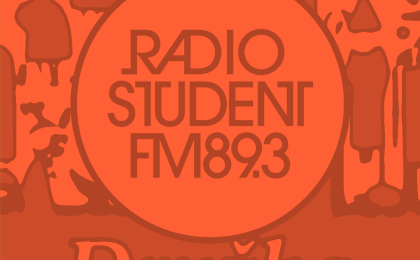
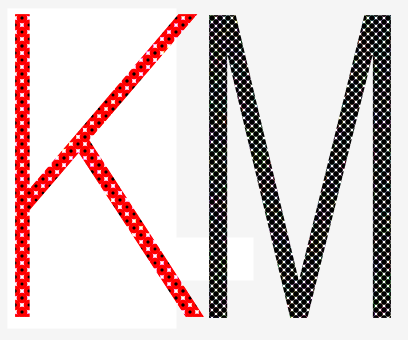
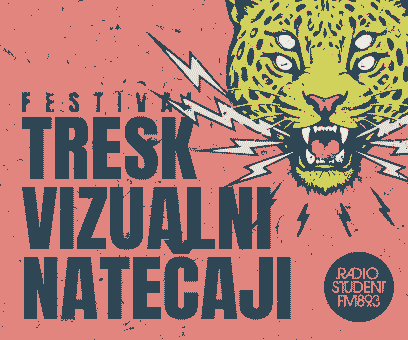
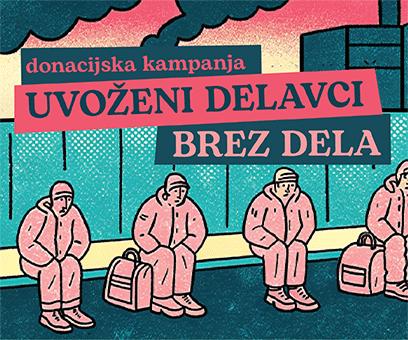
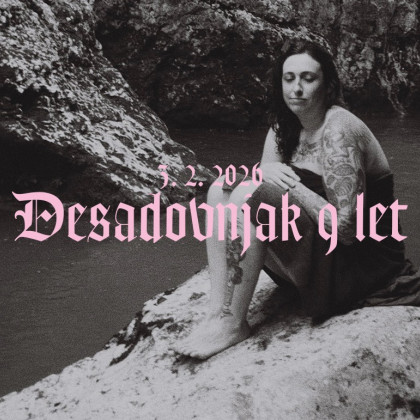

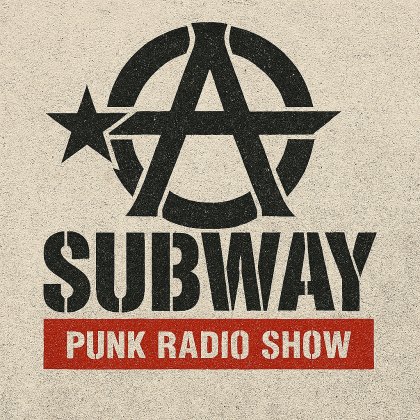
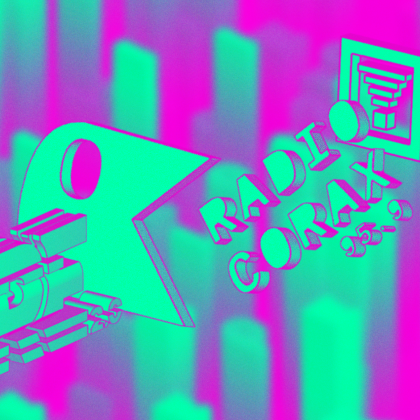
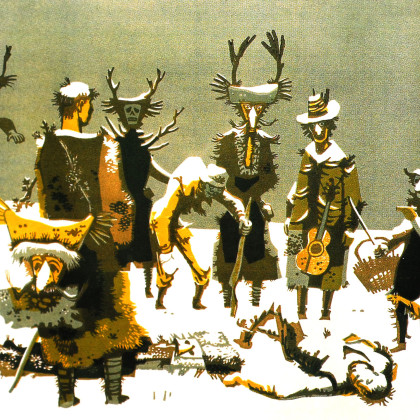

Dodaj komentar
Komentiraj